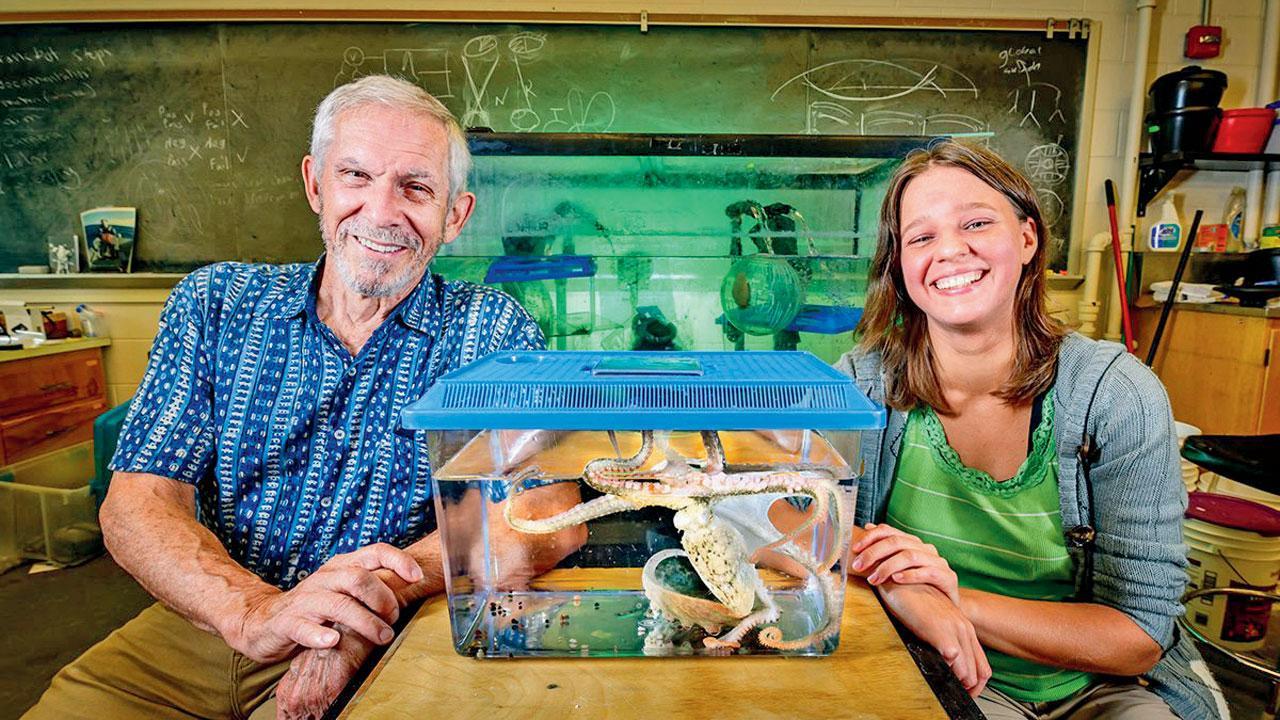Published in Neurocomputing, this research, led by Ekaterina Gribkova and Rhanor Gillette, introduces a significant shift in AI development

Professor emeritus Rhanor Gillette (left), and postdoctoral researcher at University of Illinois Urbana-Champaign, Ekaterina Gribkova, have developed the AI system. PIC/FRED ZWICKY
Scientists at the University of Illinois Urbana-Champaign have unveiled a one-of-a-kind AI system, the “CyberOctopus”. Drawing inspiration from the brain circuits of sea slugs and the advanced memory of octopuses, this AI system stands out with its ability to efficiently navigate new environments, seek rewards, and map landmarks.
ADVERTISEMENT
Published in Neurocomputing, this research, led by Ekaterina Gribkova and Rhanor Gillette, introduces a significant shift in AI development. By integrating episodic memory, similar to that of an octopus, into the AI’s architecture, the CyberOctopus can dynamically learn and recall past experiences, a departure from the norm of traditional AI models that rely on extensive pretraining data.
The CyberOctopus uses cognitive maps and a memory module to explore and adapt to its surroundings, making it capable of more complex problem-solving tasks. This innovative approach could revolutionise AI applications, from enhancing large language models like ChatGPT to more sophisticated spatial reasoning tasks.
 Subscribe today by clicking the link and stay updated with the latest news!" Click here!
Subscribe today by clicking the link and stay updated with the latest news!" Click here!







